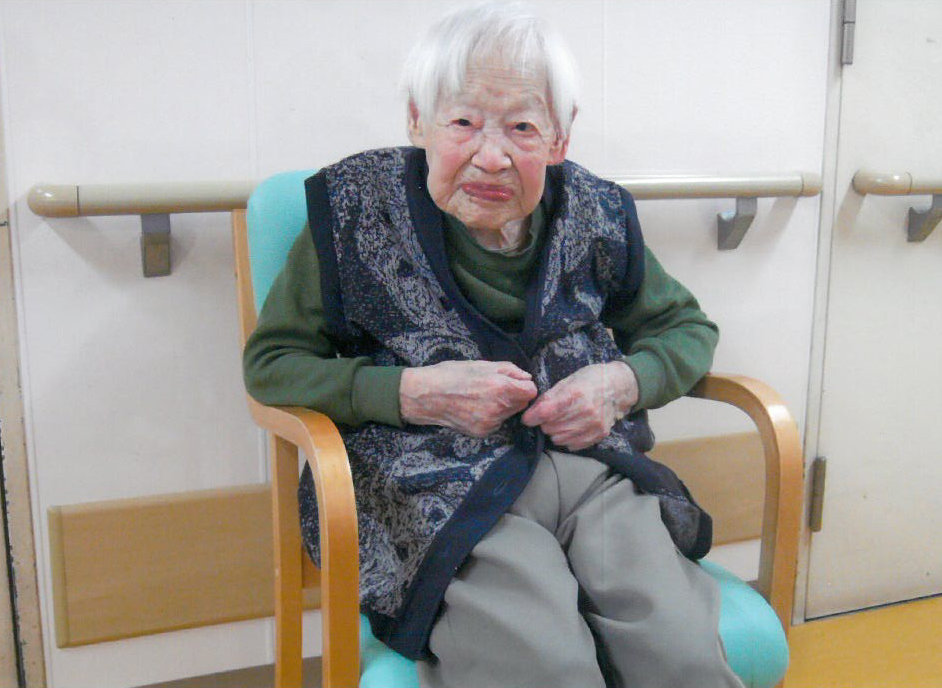World's Oldest Woman Revealed Her Secret to Long Life

The world's oldest person, a 117-year-old woman in Japan named Misao Okawa, died today. Okawa was born on March 5, 1898, and died of heart failure just a few weeks after celebrating her birthday.
Okawa was named the world's oldest person in 2013, when she was 114, according to Guinness World Records. Now, the world's oldest living person is Gertrude Weaver, a 116-year-old woman in Arkansas, according to the Gerontology Research Group, which keeps track of supercentenarians, or people older than 110.
Sakari Momoi of Japan became the world's oldest living man at 111, according to the Geronotology Research Group, since the death of Dr. Alexander Imich of New York City in June 2014. The oldest person ever known was Jeanne Louise Calment of France, who lived to be 122 years and 164 days old, and died in 1997, according to Guinness World Records. [The World's 7 Weirdest World Records]
Okawa previously told The Japan Times that the key to her longevity was "eating delicious things," such as ramen noodles, beef stew, hashed beef and rice.
In studies, a wide array of factors have been linked to living longer, including being vegetarian, eating lots of fiber, not sitting too much, jogging and volunteering. Women who drink moderate amounts of alcohol (about five drinks per week) and those who have kids when they're older may also live longer, some studies suggest. Even winning a Nobel Prize has been linked to having a longer life.
The average human life span has increased by almost 30 years over the past century, thanks to lower infant mortality rates and medical advances ranging from vaccines to heart treatments, Live Science reported in 2006.
Life extension is a ripe field of research, and experiments in animals have shown promise in tacking more years on to people's lives.
Sign up for the Live Science daily newsletter now
Get the world’s most fascinating discoveries delivered straight to your inbox.
One approach to living longer is calorie restriction, which has been studied since the 1930s, when researchers found that rats on severely restricted diets lived up to 40 percent longer than rats that ate normally. Restricting calories also has been shown to extend the lives of other animals, including fish and dogs, but it's not clear whether the benefits extend to humans.
Chemicals such as resveratrol, found in red wine, also have been reported to have anti-aging effects, but the findings on whether they actually help people live longer have been somewhat conflicting.
Meanwhile, other research is focused on developing tissue-engineered organs to replace faulty ones, or repairing the body through nanotechnology.
More speculative ideas include the notion of cryonics, or freezing a dead body in hopes that future medical technologies can bring it back to life, or uploading the mind to a computer to achieve a kind of digital immortality.
But for now, you're probably better off sticking with a healthy diet and exercise, most experts say.
Follow Tanya Lewis on Twitter. Follow us @livescience, Facebook & Google+. Original article on Live Science.










